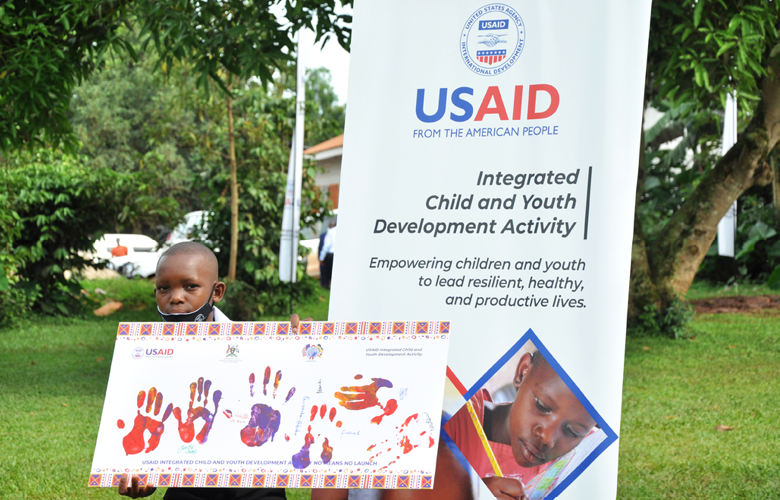
Ten-year old Seli* hears his mother wail and his father yelling, and he knows what will happen next. It is a dreadful scene that plays out every night, and he feels it is time to speak up. But before he can take that step, his father shoves him across the room. Seli is sad and blames himself for not being able to rescue his mother.
Twelve-year old Lami* is husking beans when her father comes home drunk. He stumbles over a stool and takes his anger out on Lami. As the eldest child, Lami bears the brunt of her father’s drinking. She has endured painful physical abuse and severe verbal and emotional abuse. For safety, she hides in neighboring maize gardens and banana plantations.
These stories are just two of the many narratives of Ugandan children and youth who experience violence. In addition, they also face the threat of HIV/AIDS. Uganda has 1.4 million people living with HIV, and women and young women are disproportionately affected.1
The project we work with—Integrated Child and Youth Development (ICYD) Activity—tackles the challenges of gender-based violence (GBV) and HIV/AIDS prevention and care through the Uganda Ministry of Health Community’s curriculum Journeys Plus. Developed for 9- to 14-year-olds, Journeys Plus uses a peer-based model to provide a referral pathway in the community. Children learn how to identify fellow children who seem to be experiencing GBV and to report what they see to a trusted adult or friend, who can then contact the authorities for help.
The curriculum builds on five social and emotional learning competencies:
1. Self-awareness
2. Social awareness
3. Self-management
4. Relationship building
5. Responsible decision-making
The goal of the ICYD Activity is to empower young boys and girls to protect themselves against GBV and HIV. Staff create safe spaces in the community for children to go through the curriculum, which is taught by social workers, para-social workers, village health teams, and peer leaders and youths.
Jamaal Kasomi is one of the youth trained to deliver the Journeys Plus curriculum. He is also an advocate against GBV in his community and instrumental in identifying and reporting GBV cases.
“Witnessing violence can have damaging effects on girls and boys. They live in fear and shame, and even think they are responsible for the violence they may witness or go through. I want to help young girls responsibly fight against violence and guard against HIV. I want the young boys to understand their role in preventing all forms of GBV.” says Kasomi.
Gender-based violence affects girls from all walks of life. Ending GBV requires a sustained community effort engaging multiple stakeholders: local councils, community development offices, district officials, and police. This effort is vital. When adolescent girls and young women are fully empowered and have a supportive, enabling environment to surmount the challenges they face, they will have the potential to live a life free from violence and AIDS.
*These names have been changed.
| Doreen Murungi is a communication specialist who loves to tell compelling stories to a range of audiences. She believes that by documenting these stories, she makes visible those communities that have not been seen or heard. | |
| Herman Makanga is the SRGBV prevention manager. In this role, he is responsible for increasing awareness about GBV and engaging community leaders to work with civil society organizations to more effectively advocate for GBV prevention and response.. |
1 Avert. (n.d.). HIV and AIDS in Uganda. https://www.avert.org/professionals/hiv-around-world/sub-saharan-africa/uganda


Comments
Add new comment